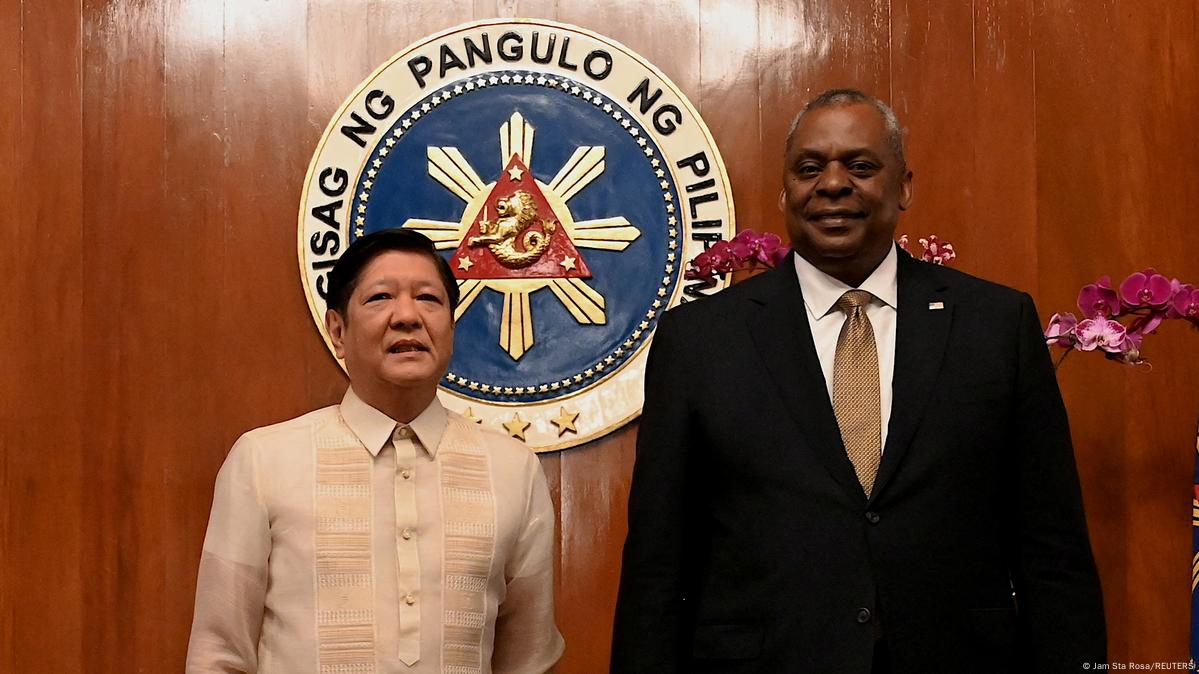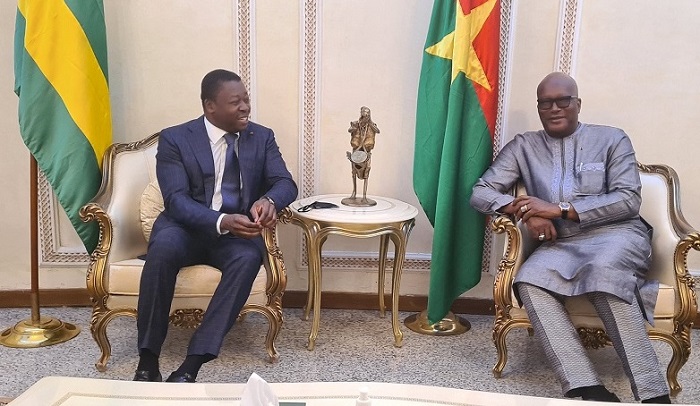Philippines Resists Chinese Pressure Over Missile Deployment

Table of Contents
The Geopolitical Context: South China Sea Disputes and Military Buildup
The South China Sea is a crucial maritime region, rich in resources and vital for global trade. However, overlapping territorial claims, particularly China's expansive nine-dash line claim, have fueled decades of disputes. China's increasingly assertive actions, including the construction of artificial islands, militarization of features, and harassment of fishing vessels, have significantly destabilized the region. This military buildup in the South China Sea poses a direct threat to regional security and challenges international law, specifically the UN Convention on the Law of the Sea (UNCLOS).
- Specific examples of Chinese actions: Construction of artificial islands in the Spratly Islands, deployment of advanced weaponry on these islands, harassment of Filipino fishing vessels in traditional fishing grounds.
- International laws and conventions: UNCLOS, which establishes maritime boundaries and zones of jurisdiction, is consistently violated by China's claims. The principle of freedom of navigation is also being challenged.
- Concerns of neighboring countries: Vietnam, Malaysia, Brunei, and Taiwan also have overlapping claims in the South China Sea and share similar concerns regarding China's aggressive actions. The instability threatens regional trade and peace.
Philippines' Strategic Response: Strengthening Alliances and Enhancing Defense Capabilities
Faced with China's growing assertiveness, the Philippines is actively strengthening its military alliances and modernizing its defense capabilities. This includes bolstering its relationship with the United States through the Enhanced Defense Cooperation Agreement (EDCA), allowing for increased US military presence and joint military exercises. The Philippines is also investing heavily in acquiring new missile defense systems to deter potential aggression. This defense modernization is a crucial element of the Philippines' strategy to resist Chinese pressure.
- Military exercises and joint operations: Regular joint military exercises between the Philippines and the US, including naval and air force drills, demonstrate commitment to regional security and defense cooperation.
- New weapons systems: Acquisition of advanced missile systems, improving the Philippines' capacity to defend its territory and project power, enhances its ability to push back against Chinese encroachment.
- Economic implications of defense spending: Increased military expenditure necessitates careful budgetary management and strategic planning to balance national security needs with other development priorities.
China's Pressure Tactics: Diplomacy, Economic Leverage, and Coercion
China employs a multifaceted approach to pressure the Philippines, utilizing a combination of diplomatic pressure, economic incentives, and subtle coercion. This includes offering lucrative trade deals and infrastructure projects under the Belt and Road Initiative (BRI), while simultaneously engaging in diplomatic maneuvers to downplay the severity of the disputes. However, economic coercion, in the form of reduced trade or tourism, is also used as a means of influencing Philippine policy.
- Economic incentives offered by China: BRI investments, offering loans and infrastructure projects, are used to build influence and economic dependence.
- Instances of diplomatic pressure: China often uses diplomatic channels to attempt to negotiate away the Philippines' claims and downplay the significance of its actions in the South China Sea.
- Philippines' strategies to mitigate Chinese influence: Diversification of trade partners, strengthening alliances, and assertive defense posture serve to mitigate the effectiveness of China’s pressure.
International Implications and the Regional Response
The conflict between the Philippines and China over missile deployment has significant international implications. Regional players are closely watching the situation, with many expressing concerns about China's actions and the potential for escalation. ASEAN, the Association of Southeast Asian Nations, plays a critical role in attempting to mediate the disputes, promoting diplomatic solutions and upholding international law. However, the effectiveness of ASEAN's approach is limited by China's significant influence within the organization.
- Statements from other countries: Many countries have voiced concerns about China's actions in the South China Sea, emphasizing the importance of respecting international law and maintaining regional stability.
- ASEAN's position: ASEAN has consistently called for peaceful resolution of disputes through dialogue and adherence to international law, although its effectiveness is often hampered by internal divisions.
- Potential outcomes and impact on regional stability: Continued escalation could lead to heightened tensions, increased military spending, and decreased regional stability. A peaceful resolution based on international law remains the most desirable outcome.
The Philippines' Stand Against Chinese Pressure: A Look Ahead
The Philippines' resistance to Chinese pressure over missile deployment demonstrates a clear commitment to defending its sovereignty and territorial integrity. The situation highlights the growing strategic competition in the South China Sea and the importance of maintaining regional stability through adherence to international law and multilateral cooperation. The future trajectory depends on the willingness of all parties to engage in constructive dialogue and respect international norms. The Philippines' actions, however, send a strong message: its commitment to resisting undue influence and protecting its national interests will continue. Stay informed about this evolving situation by following reputable news sources and think tanks focusing on Southeast Asian geopolitical affairs. Understanding how the Philippines resists Chinese pressure over missile deployment is crucial for comprehending the future of the South China Sea.

Featured Posts
-
 Fenerbahce Nin Yildizi Dusan Tadic Sueper Lig De 100 Maca Tamamladi
May 20, 2025
Fenerbahce Nin Yildizi Dusan Tadic Sueper Lig De 100 Maca Tamamladi
May 20, 2025 -
 Solve The Nyt Mini Crossword Answers For March 8
May 20, 2025
Solve The Nyt Mini Crossword Answers For March 8
May 20, 2025 -
 Hmrc Child Benefit Notifications What To Look Out For
May 20, 2025
Hmrc Child Benefit Notifications What To Look Out For
May 20, 2025 -
 Met Gala 2025 Suki Waterhouses Bold Black Tuxedo Dress
May 20, 2025
Met Gala 2025 Suki Waterhouses Bold Black Tuxedo Dress
May 20, 2025 -
 Visite D Amitie Et De Travail Du President Ghaneen Mahama A Abidjan Renforcement Des Liens Diplomatiques
May 20, 2025
Visite D Amitie Et De Travail Du President Ghaneen Mahama A Abidjan Renforcement Des Liens Diplomatiques
May 20, 2025
Latest Posts
-
 Drugo Dijete Jennifer Lawrence Kada I Gdje Se Dogodio Dogadaj
May 20, 2025
Drugo Dijete Jennifer Lawrence Kada I Gdje Se Dogodio Dogadaj
May 20, 2025 -
 Jennifer Lawrence I Drugo Dijete Detalji O Rodenju
May 20, 2025
Jennifer Lawrence I Drugo Dijete Detalji O Rodenju
May 20, 2025 -
 Jennifer Lawrence Potvrdeno Rodila Drugo Dijete
May 20, 2025
Jennifer Lawrence Potvrdeno Rodila Drugo Dijete
May 20, 2025 -
 The Critical Consensus Jennifer Lawrences New Release
May 20, 2025
The Critical Consensus Jennifer Lawrences New Release
May 20, 2025 -
 Critics Verdict Jennifer Lawrences Recent Movie
May 20, 2025
Critics Verdict Jennifer Lawrences Recent Movie
May 20, 2025
